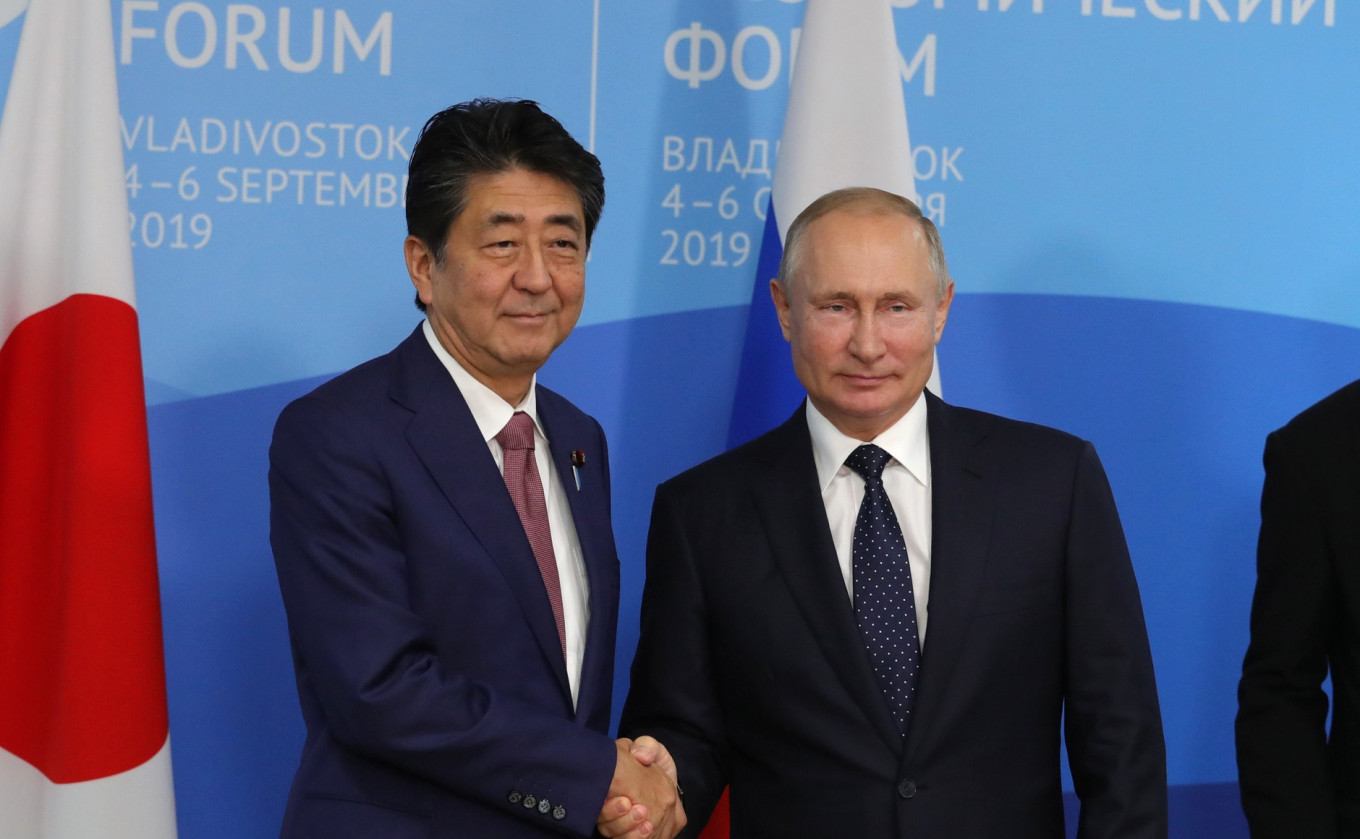
Former Japanese Prime Minister Shinzo Abe has recalled the “strong impression” that Russian President Vladimir Putin’s stance on the Syrian civil war at the G8 summits left on him in a new interview.
Russia was one of the G8 group of leading economic powers until 2014, when its membership was suspended indefinitely over its annexation of Crimea from Ukraine.
“Putin was never on his back foot against the seven other nations. Indeed, he appeared almost dominant,” Abe told the Japan Foreign Policy Forum in the interview published last week.
Putin was the only leader to back Syrian President Bashar al-Assad at the G8’s June 2013 summit, with others calling on the Syrian leader to resign over his alleged use of chemical weapons. His stance dashed the G8’s hopes of convening a peace conference leading toward a transitional government in Syria and an end to the country’s bloody conflict.
“President Putin’s stance left a strong impression on me,” Abe said.
Putin challenged his counterparts to name a person who would be able to rule Syria if Assad were removed, a question they struggled to answer, Abe recounted.
“The G7 leaders said they had the Free Syrian Army, in response to which Putin asked if the Free Syrian Army had ever won a battle. He said they are ‘moderates’ and that ‘moderates’ do not fight. He said that he knew that the West were selling weapons to them and that they were reselling them to others. Putin asked if they were really ready to govern Syria. This was realism,” Abe said.
“I do not want to say that Putin was right. Whether good or bad, his ideas were based on a strong concept of power politics believing that in the Middle East, the ruthless and strong win,” the former prime minister said.
Russia’s support for the Assad regime, particularly with its military intervention that began in 2015, continues to draw criticism from the West.
Last month, the new U.S. envoy to the United Nations accused Russia of blocking efforts to hold Assad’s government accountable for the use of chemical weapons.
Abe served as Prime Minister of Japan from 2006-2007 and again from 2012-2020, with his second term the longest in Japan’s modern history.